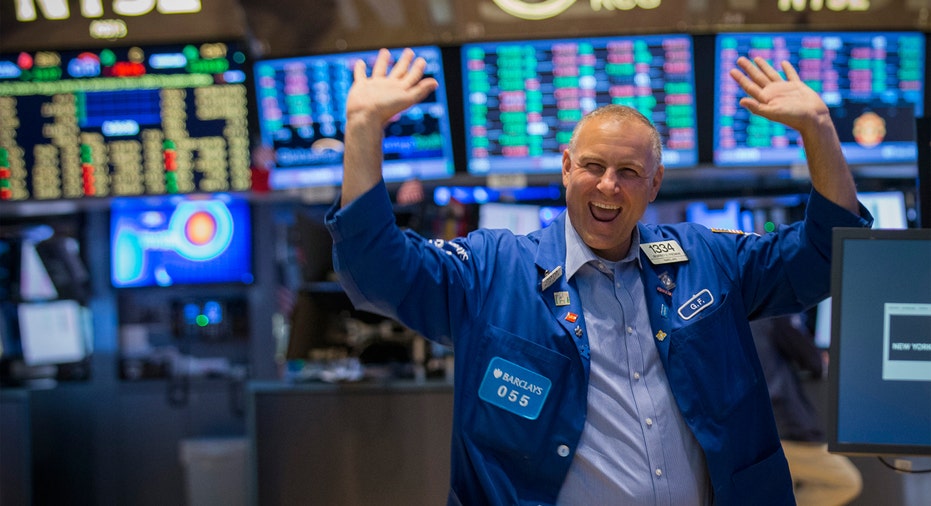Dow Sets Longest Record Streak Since '87 as Investors See Little Risk to Rally

Just two months in, it’s been a blockbuster year for U.S. investors.
With the Dow Jones Industrial Average’s slight Wednesday gains, the blue-chip index booked its ninth-straight record-setting day to mark a winning streak not seen since 1987, when the Dow saw 12 sessions in a row of all-time highs, according to data from the Dow Jones Market Data Group.
The Dow isn’t alone in its record-setting pace – the optimism has spread all across Wall Street. President Donald Trump’s surprise November election alongside improving economic data in the U.S. helped trigger the euphoria as investors continue to expect fiscal policy reforms that will usher in lower tax rates, more spending on projects like an infrastructure overhaul, and less regulation on American businesses. Since Election Day, the major averages have posted gains of more than 13%.
On the economic front, consumer and business optimism have marched higher since November as the labor market has improved and inflation moves close to the Federal Reserve’s 2% target. Minutes from the FOMC meeting last month released on Wednesday showed participants agreed as long as progress continues along at the current pace, they see a rate rise justified “fairly soon.”
With nothing seeming to get in the way of the markets upward trajectory, it’s getting harder to find a red herring that may signal trouble ahead, said Janny Chief Market Strategist Mark Luschini.
”There are events lurking that could lead to that like a potential conflict in the South China Sea, or an unexpected outcome in European elections – particularly in France or Brussels – or the March 31 date British Prime Minister Theresa May said she’ll drop Article 50 [officially triggering the U.K.’s separation process from the European Union],” he said. “At the moment, none of them seem to be worrisome for market participants.”
The biggest reason he said equity markets haven’t been willing to pause for looming calendar events is a lack of convincing evidence that any one or all will amount to more than just flash points -- if not completely benign events.
Luschini pointed to the presidential race in France that pits frontrunners Marine Le Pen and Francois Fillon against each other.
“If Le Pen pulls a Trump and we have ‘FrExit’ in play, that’s a lot more problematic than Fillon winning, who is a conservative, pro-EU politician. His win would render that situation benign,” he said.
Closer to home, investors are keeping a keen eye on the White House for any hints about policy initiatives coming down the pike. Two weeks ago, Trump promised to take the wraps off "soon" on his tax policy reform plan. But Wednesday press secretary Sean Spicer said while the plan is “very well finalized,” the administration is waiting to roll it out until after a separate measure to repeal the Affordable Care Act is released.
But Wall Street might not have much patience to wait for Trump’s campaign promises to come to fruition. Strategists at Wells Fargo Investment Institute said policy missteps could result in “extreme consequences.”
”We believe that the black-swan events…have a low likelihood of occurring, but nevertheless believe that investors should be properly positioned in case of a low-probability outcome,” they said. They suggest long-term investors should rebalance their portfolio allocations with strategic objectives in mind, taking opportunities to both trim and add while favorable market conditions hang around and to keep an eye out for any buying opportunities.
“We also suggest that investors avoid trying to time the equity markets, particularly as it relates to events surround the Europe, China or U.S. trade policy, as being out of the markets at the wrong time is costly,” they said.
Luschini agreed, saying it’s best not to try and chase risk events, but “stay long and stay tuned.” He recommended sectors that are now potentially overbought and have led the market higher – including financials and technology – could be most ripe for a pullback.



















